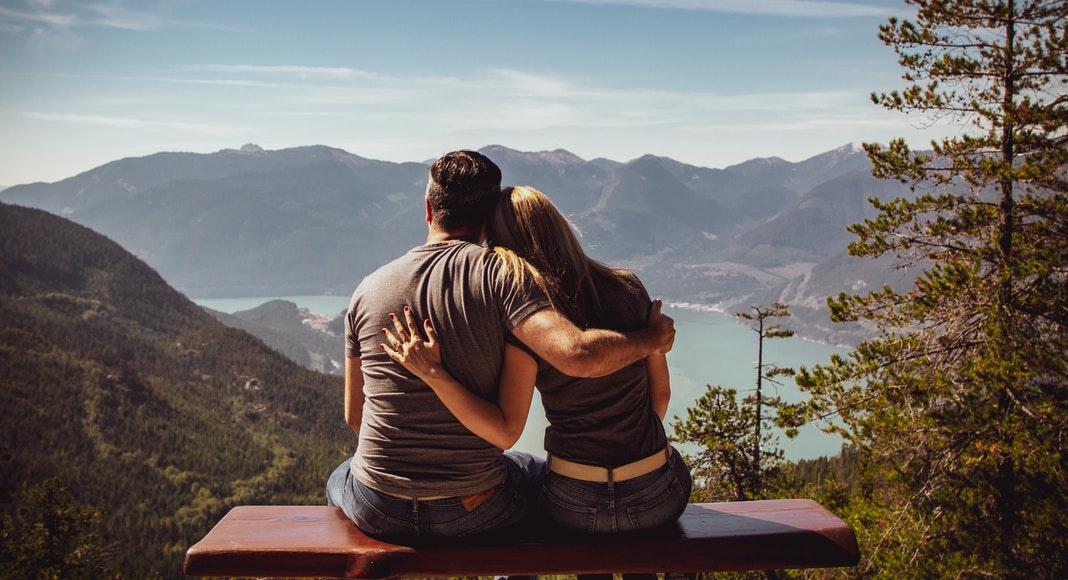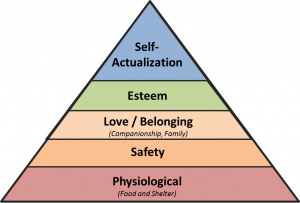 The movie Save Yourselves is an apocalyptic comedy that speaks to our present moment more than anything else I have seen during the pandemic. The movie is about a thirty-something New York couple who spend a weekend in the country to take a “tech break,” reset their intentions and recharge their relationship. At the beginning of the movie they hike, canoe, make bread and argue. The woman wants to start a family. The man feels insecure about his masculinity. Before any of these disputes can be settled, their weekend away gets derailed by the apocalypse. Near the end of the movie, the couple sit at the top of a cliff, catching their breath after surviving a series of life threatening events. The woman rhetorically asks the man, “who even are we?” He answers: “Oh…I don’t think that matters now.”
The movie Save Yourselves is an apocalyptic comedy that speaks to our present moment more than anything else I have seen during the pandemic. The movie is about a thirty-something New York couple who spend a weekend in the country to take a “tech break,” reset their intentions and recharge their relationship. At the beginning of the movie they hike, canoe, make bread and argue. The woman wants to start a family. The man feels insecure about his masculinity. Before any of these disputes can be settled, their weekend away gets derailed by the apocalypse. Near the end of the movie, the couple sit at the top of a cliff, catching their breath after surviving a series of life threatening events. The woman rhetorically asks the man, “who even are we?” He answers: “Oh…I don’t think that matters now.”
That line of dialogue has been swirling in my head for months. I am in awe of how we spent our mental energy prior to March of 2020. The petty inconveniences we used to complain about. The goals we used to set for ourselves. It all seems so frivolous and irrelevant now. For those of us lucky enough to have our basic needs met, so much pre-pandemic brain space was spent on the work of self-actualization. Now, we just want our lives back. We crave the smallest, most basic pleasures like eating dinner with friends or going to the gym. It seems inconceivable that we ever wanted more than this, that this life wasn’t enough to make us happy.
Maslow’s Hierarchy of Needs is a psychological tool that illustrates what humans are capable of expending energy on. At the bottom of the pyramid are physiological needs (food and water) followed by safety needs like shelter. If those needs aren’t met, all our energy goes towards meeting them. If you are starving, you can only think about getting food. You aren’t expending energy worrying about being in the wrong career. Only when our basic needs are met can we move up the pyramid to the next level: love and esteem. On the very top of the pyramid is self actualization. According to Maslow’s Hierarchy of needs, questions like “who am I and who do I want to be?” are only questions we are capable of pondering when all other needs are met. At the end of the movie Save Yourselves, the hipster New York couple is at the bottom of Maslow’s pyramid. They are fighting for survival, marveling at how irrelevant the self-actualization they were doing only hours earlier seems now.
 At the beginning of the pandemic, we all found ourselves on the bottom of Maslow’s pyramid, frantically making trips to the grocery store for food, water and precious toilet paper. For so many people across the country, the access to basic needs has been challenged by the pandemic. Those folks have not been able to move from the very bottom of Maslow’s Pyramid. But many of us have had our basic needs met. Those of us who have had enough food, safety, security and toilet paper have still been stressed and anxious by the demands of this pandemic. But we have also had some opportunity, however limited, to be on the top of this pyramid, to focus on self-actualization.
At the beginning of the pandemic, we all found ourselves on the bottom of Maslow’s pyramid, frantically making trips to the grocery store for food, water and precious toilet paper. For so many people across the country, the access to basic needs has been challenged by the pandemic. Those folks have not been able to move from the very bottom of Maslow’s Pyramid. But many of us have had our basic needs met. Those of us who have had enough food, safety, security and toilet paper have still been stressed and anxious by the demands of this pandemic. But we have also had some opportunity, however limited, to be on the top of this pyramid, to focus on self-actualization.
This pandemic has pushed us to become more patient. We started off waiting weeks for our lives to get back to normal, now we find we are thinking in terms of years. We have been asked to sacrifice: jobs, opportunities, time, brainpower. We have been forced to grieve. Many of us have lost loved ones to the virus. All of us have lost the connectedness of community. We have been forced to be creative, to think differently and innovatively how we will get our work done, how our children will learn. We have had to be empathic and selfless. For the first time, our individual behaviors, something as simple as having dinner with a friend, could risk the lives of others. We have had to sacrifice our own sanity, happiness, regulation and joy to keep the most vulnerable among us safe.
The way we usually think about self-actualization is the way it is parodied at the top of Save Yourselves. It is generally viewed as a worthy, but self-indulgent practice for those lucky enough to have time, energy and money to spare. We think about self-actualization in terms of journaling, meditating, hiking, eating healthy, going on runs and walks, being in therapy, spending valuable time with oneself or a few valued others. We think of self-actualization as a process that unfolds when we have time and space and energy to do it. The question: who am I, is one we ask ourselves when we want to forcefully change the answer. When we make the choice to eat healthier, to be kinder, more honest…better.
In the past 10 months, our true natures have been revealed. This hasn’t happened through weekend retreats, or time spent in content quiet reflection. We did not choose this work of self-actualization, but it chose us. Those of us lucky enough to have our basic needs met have had an opportunity to see ourselves fully: all our flaws and strengths laid bare. Will we make sacrifices to keep our communities safe? Will we be patient, and grateful and empathic? Can we discover joy through simple, everyday things? Can we stay hopeful and positive, even through the darkness?
Who are we?
At the end of the movie Save Ourselves, the couple realizes the frivolous nature of this question. But I would argue that this question is less frivolous now than ever. During this pandemic, this question couldn’t be more important. Who are we? Will we be patient, resilient and self-less? As the pandemic continues, this is what we strive for. Who are we? This has never mattered more.














